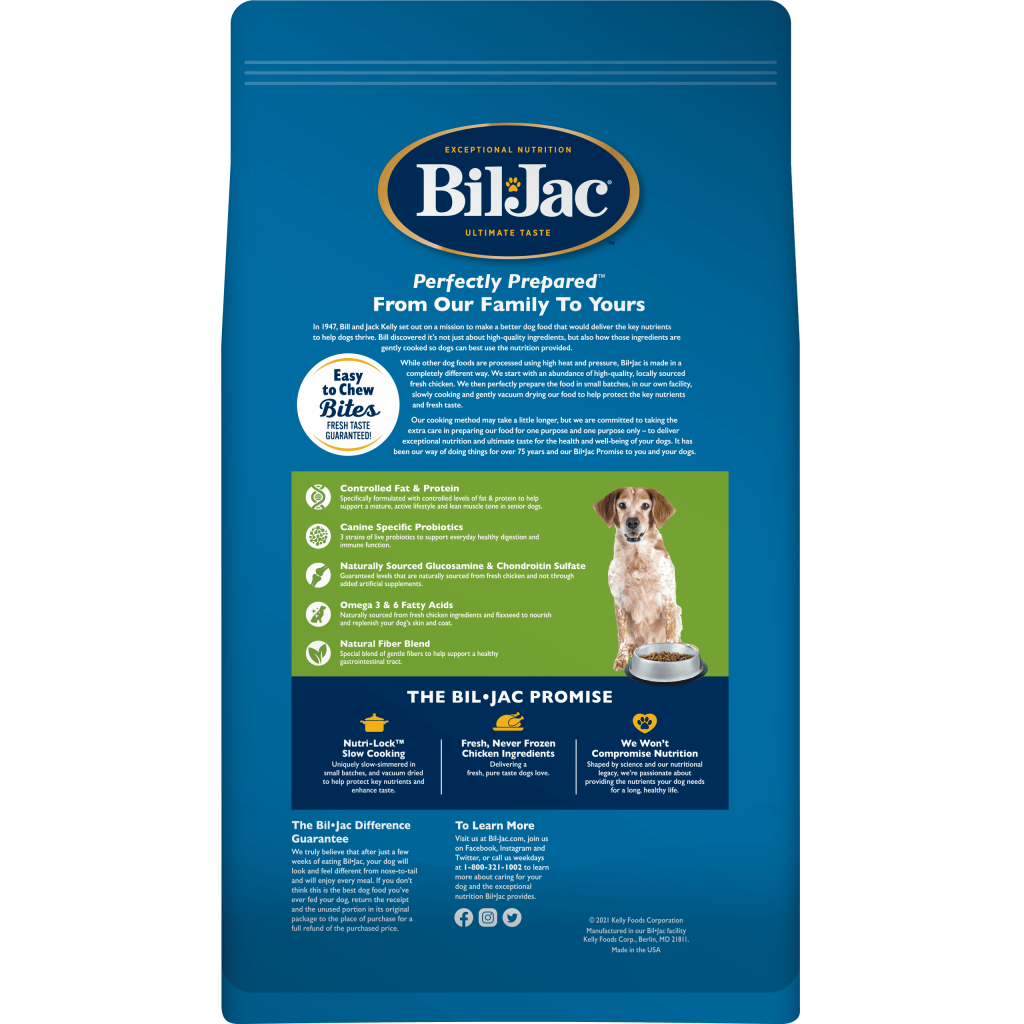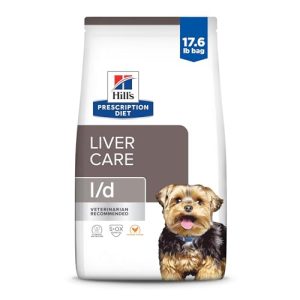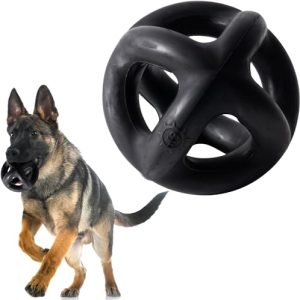If you have a senior dog, you want to give them the best care possible. One key question you might have is, how much protein does your older dog really need?
Protein is essential for keeping your dog’s muscles strong, energy up, and overall health in check. But too much or too little can cause problems. Understanding the right protein amount can make a big difference in your dog’s comfort and vitality as they age.
Keep reading, and you’ll discover simple, clear answers that help you give your furry friend exactly what they need.
Protein Needs For Senior Dogs
Senior dogs need enough protein to keep muscles strong and support health. A balanced amount helps maintain energy and aids recovery. Protein levels should match their age, weight, and activity.
Protein Needs for Senior DogsAs dogs age, their nutritional needs evolve, making protein an essential component of their diet. Protein supports muscle maintenance, immune function, and overall vitality. Understanding how much protein your senior dog requires can be the key to ensuring they lead a healthy and active life.Age-related Changes In Metabolism
With age, a dog’s metabolism naturally slows down. This means they burn fewer calories, but their need for protein doesn’t decrease. In fact, older dogs often require a higher percentage of protein in their diet to support muscle mass and repair tissues. You might notice your senior dog isn’t as active as they used to be. This decrease in activity can lead to muscle loss if their protein intake isn’t adjusted. Ensuring they get enough protein can help counteract these age-related changes.Impact Of Protein On Aging
Protein plays a crucial role in keeping your senior dog feeling youthful and energetic. It aids in repairing cells and building tissues, which is vital as dogs age. A diet rich in high-quality protein can help mitigate the effects of aging. Consider your dog’s overall health when determining their protein needs. If your senior dog has certain health conditions, like kidney disease, consult your vet for tailored dietary advice. Balancing protein intake can improve their quality of life, helping them stay active and engaged as they age. Have you ever noticed a positive change in your senior dog’s energy levels after tweaking their diet? Share your experiences and insights with other pet owners. It’s a great way to build a community of informed and caring dog lovers.
Credit: www.bil-jac.com
Benefits Of Adequate Protein Intake
Protein is vital for senior dogs to stay healthy and active. It supports many body functions and helps prevent common age-related issues. Adequate protein intake keeps your dog strong and energetic. It also aids in recovery from illness and injury. Senior dogs need more protein than younger dogs due to changes in metabolism and muscle loss.
Maintaining Muscle Mass
Protein helps build and preserve muscle tissue. Older dogs lose muscle naturally, leading to weakness. Sufficient protein slows this loss and keeps muscles firm. Strong muscles improve mobility and balance. This reduces the risk of falls and injuries in senior dogs.
Supporting Immune Function
Proteins are essential for a healthy immune system. They help produce antibodies to fight infections. Senior dogs with good protein intake resist diseases better. Protein also supports healing and recovery after sickness. It keeps the immune system strong and active.
Promoting Joint Health
Protein provides building blocks for cartilage and joints. Healthy joints allow easier movement and less pain. Older dogs often suffer from arthritis and joint stiffness. Proper protein levels help maintain joint repair and flexibility. This leads to a more comfortable and active life.
Recommended Protein Amounts
Understanding the right amount of protein for your senior dog is essential to keep them strong and healthy. Protein supports muscle maintenance and overall vitality as dogs age. Let’s look at how much protein your senior dog needs based on their weight and other factors.
Daily Protein Requirements By Weight
Protein needs often depend on your dog’s weight. Generally, senior dogs require about 1 to 1.5 grams of protein per poundof body weight daily. For example, a 20-pound senior dog should get between 20 and 30 grams of protein each day.
Smaller dogs may need the higher end of this range to maintain muscle mass. Larger dogs might require slightly less per pound, but their total protein intake is naturally higher. Tracking your dog’s weight regularly helps you adjust protein amounts as needed.
Differences Between Breeds And Sizes
Not all senior dogs have the same protein needs. Active breeds like Border Collies or German Shepherds often need more protein to support their energy levels and muscle health. Less active or smaller breeds may require less but still need quality protein sources.
Have you noticed your senior dog slowing down or losing muscle tone? It might be time to re-evaluate their protein intake. Consulting your vet about breed-specific needs can provide tailored advice that fits your dog’s lifestyle and health.
Choosing The Right Protein Sources
Choosing the right protein sources is key for your senior dog's health. Protein helps maintain muscle mass and supports energy levels. Older dogs need protein that is easy to digest and rich in essential amino acids. Selecting the best type of protein improves their overall well-being and vitality.
Animal Vs. Plant Proteins
Animal proteins come from meat, fish, and eggs. These proteins contain all essential amino acids dogs need. They are usually easier for dogs to digest and absorb. Plant proteins come from beans, lentils, and grains. These often lack some essential amino acids. Combining plant proteins can provide a complete amino acid profile. Animal proteins generally offer better nutrition for senior dogs.
High-quality Protein Options
- Chicken and turkey: Lean, easy to digest, and rich in amino acids.
- Fish like salmon: Contains omega-3 fatty acids and high-quality protein.
- Eggs: A complete protein source with good digestibility.
- Beef: Provides strong protein but should be lean and cooked.
- Lentils and chickpeas: Good plant protein, best combined with animal proteins.
Choose fresh, minimally processed protein sources. Avoid fillers and by-products. This supports your senior dog’s nutrition and helps keep them active.
Signs Of Protein Deficiency
Recognizing the signs of protein deficiency in your senior dog is crucial to maintaining their health and vitality. Protein plays a key role in muscle maintenance, immune function, and overall energy levels. If your dog isn’t getting enough protein, you might notice some subtle changes that signal a need for dietary adjustment.
Physical Symptoms
One of the most obvious signs of protein deficiency is muscle loss. Your dog may seem weaker, tire faster during walks, or struggle with jumping up on furniture.
Watch for thinning fur or a dull coat. Protein helps keep your dog’s skin and fur healthy, so a lack can lead to hair loss or dry, flaky skin.
Slow wound healing is another physical indicator. If your dog’s cuts or sores take longer to heal, it might be due to insufficient protein intake.
Behavioral Changes
Have you noticed your senior dog becoming less active or playful? A drop in energy can be a sign of protein deficiency affecting their stamina and mood.
Changes in appetite are common too. Protein shortage might make your dog less interested in food or more selective, which can worsen the issue.
Increased irritability or signs of discomfort could also occur. Protein supports brain function, and its lack might affect your dog’s behavior and overall well-being.
Adjusting Protein For Health Conditions
Protein needs for senior dogs vary with their health status. Adjusting protein intake helps manage specific health conditions effectively. Tailoring protein can support recovery and improve quality of life.
Kidney Disease Considerations
Kidney disease changes how dogs process protein. Too much protein can strain kidneys. Lower protein diets may reduce kidney workload. Choose high-quality protein sources to provide essential amino acids. Balance is key—enough protein to maintain muscle without overloading kidneys.
Regular vet checks help monitor kidney function. Adjust protein based on test results and symptoms. Hydration also supports kidney health alongside diet changes.
Managing Obesity And Weight
Obese senior dogs need protein for muscle maintenance. Protein helps preserve lean mass during weight loss. Reduce calories but keep protein levels adequate. This supports metabolism and prevents muscle loss.
Choose protein sources that are low in fat and calories. Combine protein with fiber to increase fullness. Portion control and regular exercise complement dietary protein adjustments.
Feeding Tips For Senior Dogs
Feeding your senior dog the right amount of protein is essential, but how you feed them can be just as important. Adjusting meal frequency and portion sizes can help manage their energy levels and digestion. Plus, adding the right supplements and treats supports overall health without upsetting their diet.
Meal Frequency And Portions
Older dogs often have slower metabolisms and lower activity levels, so feeding smaller meals more frequently can help. Splitting their daily food into two or three portions prevents overeating and keeps their energy steady throughout the day.
Watch your dog’s weight closely. If you notice any gain or loss, adjust portions accordingly. You might find that 3 smaller meals work better than 2 larger ones, especially for dogs with digestive issues.
Have you noticed your senior dog getting hungrier at odd times? Try feeding at consistent times each day to build a routine that works for both of you. Consistency helps their body anticipate meals and can reduce begging or anxiety.
Supplements And Treats
Supplements like omega-3 fatty acids or glucosamine can support joint health and reduce inflammation. Always check with your vet before adding supplements to ensure they fit your dog’s specific needs.
When choosing treats, pick options that are low in calories but high in nutrients. Avoid treats with fillers and artificial ingredients that might upset your dog’s digestion.
Try using small pieces of cooked lean meat or specially formulated senior dog treats to reward good behavior without overloading on calories. This keeps your dog happy and healthy without compromising their protein balance.

Credit: jiminys.com
Credit: www.businessinsider.com
Frequently Asked Questions
How Much Protein Does A Senior Dog Need Daily?
Senior dogs typically need about 1. 0 to 1. 5 grams of protein per pound of body weight daily. This supports muscle maintenance and overall health. Adjust protein intake based on activity level and health conditions for best results.
Why Is Protein Important For Senior Dogs?
Protein helps maintain muscle mass and supports immune function in senior dogs. It also aids in tissue repair and energy production, which are crucial as dogs age. Proper protein intake improves their vitality and quality of life.
Can Too Much Protein Harm Senior Dogs?
Excess protein can strain kidneys, especially in dogs with kidney disease. However, healthy senior dogs usually tolerate moderate protein well. Always consult your vet to determine the right protein level for your dog’s health.
Should Senior Dogs Eat Different Protein Types?
Yes, senior dogs benefit from high-quality, easily digestible proteins like chicken, fish, or lamb. These support better nutrient absorption and muscle health. Variety can also keep meals appealing and balanced.
Conclusion
Senior dogs need the right amount of protein to stay healthy. Protein helps keep their muscles strong and energy up. Too little protein can cause weakness and weight loss. Too much protein may strain their kidneys. Balance is key for their well-being.
Choose high-quality protein sources like chicken, fish, or eggs. Consult your vet to find the best amount for your dog. Regular check-ups help adjust their diet as they age. Healthy protein supports a happy, active senior dog. Simple steps can make a big difference in their life.

Emily Barker is the founder of ChillDogLife.com, a space dedicated to helping pup parents discover the best dog products, lifestyle tips, and cozy ideas for happier homes.
A lifelong dog lover, Emily combines her passion for pets with a knack for research to share trusted recommendations on everything from toys and furniture to health and everyday care.
Her goal is simple: to make life easier, stylish, and more joyful for dogs and the people who love them.







